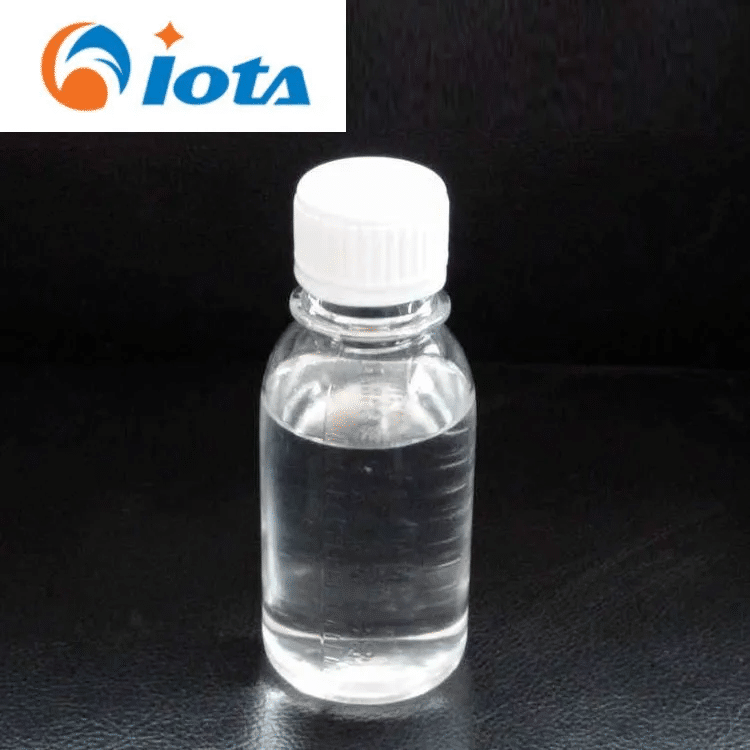On September 11, 2025, Beijing, China - With global industrial upgrading and emerging technology iteration,
ethyl silicone oil (chemical name: polydiethylsiloxane) is becoming a core material in high-end manufacturing, new energy, and biomedicine fields due to its excellent high and low temperature resistance, lubricity, and chemical stability. Recently, the industry has entered a new growth cycle driven by both technological innovation and market demand.

Technological breakthrough: Low ring process solves environmental problems, high-end production capacity continues to be released
Yunnan Nengtou Silicon Material Technology Development Co., Ltd. (hereinafter referred to as "Yunneng Silicon Material") recently announced that its independently developed low ring ethyl silicone oil has achieved large-scale production, with an annual production capacity exceeding 5000 tons. This technology reduces the high environmental content (affecting environmental protection and product performance) in traditional processes to industry-leading levels through full process automation control, while improving process stability and capacity utilization.
According to the R&D team of Yunneng Silicon Materials, low cyclic ethyl silicone oil can meet the strict requirements of "ultra pure, low volatility" materials in the fields of electronic packaging, biomedical materials, and precision manufacturing. It has been successfully applied in the chip packaging process of an international semiconductor enterprise, significantly reducing the risk of residual glue and improving product yield. In addition, this technology reduces energy consumption by 30% by reducing the secondary vulcanization process, and complies with environmental regulations such as REACH and RoHS in the European Union, clearing obstacles for the export of domestic silicone oil to the high-end market.
Explosive demand: Emerging fields drive market expansion, domestic substitution accelerates
According to the latest report from Bezos Consulting, the global market size of ethyl silicone oil will reach 1.276 billion yuan by 2025, with China accounting for over 25%. With the rapid development of new energy vehicles, 5G communication, and aerospace industries, the demand for ethyl silicone oil has surged in scenarios such as battery cooling, high-frequency signal transmission, and extreme environmental lubrication.
In the field of new energy vehicles, ethyl silicone oil, as the core component of thermal conductive silicone film, can effectively solve the problem of thermal runaway in power batteries under high temperature conditions. Jitai Co., Ltd. and other companies have launched modified ethyl silicone oil for sealing robot moving parts, which has a temperature resistance of over 200 ℃ and a lifespan twice that of traditional materials.
Semiconductor industry: According to the patent application filed by Shenzhen Huaxun Semiconductor Materials Co., Ltd., its developed material is based on ethyl silicone oil. By adding hydrogen containing silicone oil and organic silicon MQ resin, the residual adhesive rate in the chip packaging process is less than 0.1%, and the technical indicators are superior to similar international products.
In the field of biomedicine, Xinyuan Chemical (Shandong) Co., Ltd. has developed an ultra-low temperature resistant ethyl silicone oil that can maintain fluidity at -80 ℃. It has been applied as a lubricating coating for medical refrigeration equipment and implantable devices, breaking the foreign technological monopoly.
Competitive landscape: Top enterprises dominate technological iteration, while small and medium-sized enterprises focus on segmented markets
The Chinese silicone oil industry presents the characteristics of "head concentration and segmented differentiation". Zhejiang Hesheng Silicon Industry occupies 30% of the domestic market share with its full industry chain layout, and its ethyl silicone oil products cover all categories from industrial grade to electronic grade; Enterprises such as Yunneng Silicon Materials and Xinyuan Chemical have formed competitive advantages in the high-end market through differentiated technology routes.
In terms of foreign brands, companies such as Dow Chemical (DOWSIL) and Wacker have accelerated localized production, but their product prices are 20% -30% higher than domestic high-end silicone oils, leaving market space for domestic enterprises. Industry insiders point out that with the policy tilt towards the new materials industry in the 14th Five Year Plan, the comprehensive advantages of domestic ethyl silicone oil in technology, cost, and service response will be further highlighted.
Future prospects: Core directions of greening and intelligentization
Industry experts analyze that the future growth of the ethyl silicone oil market will depend on two major trends:
Green manufacturing: Low VOC (volatile organic compounds) and biodegradable silicone oil have become the focus of research and development. Yunneng Silicon Materials plans to launch bio based ethyl silicone oil by 2026, using renewable resources such as corn stalks as raw materials.
Intelligent application: Combined with IoT technology, ethyl silicone oil is being upgraded to an "adaptive material". For example, by adding temperature sensitive microcapsules, automatic viscosity regulation of lubricating oil under extreme working conditions can be achieved, and this technology has been tested in wind turbine gearboxes.
With the restructuring of the global industrial chain and the promotion of carbon neutrality goals, ethyl silicone oil is rising from a traditional industrial auxiliary material to a strategic new material. Under the dual efforts of technological breakthroughs and market expansion, Chinese enterprises are expected to gain a higher voice in global competition.
